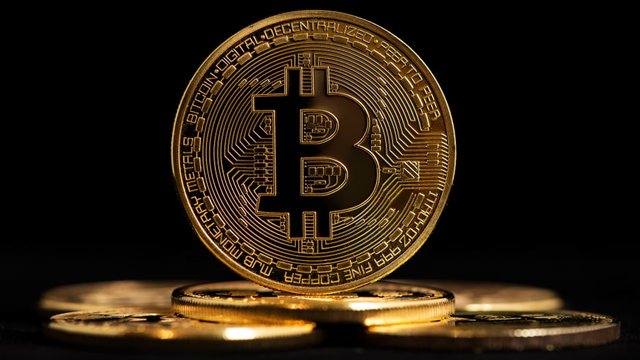Cryptocurrency has become a hot topic in recent years, and Bitcoin has been leading the pack. As the world's first cryptocurrency, Bitcoin has brought significant changes to the financial industry. This article will provide a comprehensive guide to understanding Bitcoin, its history, how it works, and its potential future.
Introduction
Cryptocurrency is a digital or virtual currency that uses cryptography for security. Bitcoin is the first cryptocurrency that was created in 2009 by an anonymous person or group of people under the pseudonym, Satoshi Nakamoto. Since then, Bitcoin has become the most valuable and well-known cryptocurrency, with a market capitalization of over $1 trillion.
What is Bitcoin?
Bitcoin is a decentralized digital currency that is not controlled by any government or financial institution. It allows for peer-to-peer transactions without the need for intermediaries such as banks or payment processors. Bitcoin uses a decentralized ledger called a blockchain to record all transactions and maintain the integrity of the network.
How does Bitcoin work?
Bitcoin transactions are verified and processed by a network of computers called nodes. Nodes use complex algorithms to verify transactions and record them on the blockchain. The blockchain is a public ledger that anyone can view, and it ensures that each Bitcoin transaction is valid and cannot be altered.
The History of Bitcoin
Bitcoin's history dates back to 2008 when Satoshi Nakamoto published a whitepaper titled "Bitcoin: A Peer-to-Peer Electronic Cash System." In 2009, the Bitcoin network went live, and the first Bitcoins were mined. Bitcoin was initially worth only a few cents, but by 2017, its value had skyrocketed to nearly $20,000.
Advantages of Bitcoin
Bitcoin offers several advantages over traditional fiat currency. It allows for faster and cheaper transactions, eliminates the need for intermediaries, and provides greater financial privacy. Bitcoin is also deflationary, which means its value is likely to increase over time.
Risks of Bitcoin
Despite its advantages, Bitcoin also comes with risks. Its value is highly volatile and can fluctuate wildly, making it a risky investment. Bitcoin transactions are irreversible, which means that if you make a mistake, your funds could be lost forever. Additionally, Bitcoin has been associated with illegal activities such as money laundering and drug trafficking.
How to Get Bitcoin
There are several ways to acquire Bitcoin. You can mine Bitcoin by using specialized hardware to solve complex mathematical algorithms, or you can buy Bitcoin on a cryptocurrency exchange. Bitcoin can also be earned by accepting it as payment for goods or services.
The Future of Bitcoin
The future of Bitcoin is uncertain, but many experts believe it has a bright future. As more people adopt Bitcoin and more businesses accept it as payment, its value is likely to increase. Additionally, advancements in technology may make Bitcoin faster and more secure, making it a more viable alternative to traditional fiat currency.
Conclusion
Bitcoin has become an important part of the financial landscape and has the potential to change the way we think about money. While it has its risks, Bitcoin also offers significant advantages over traditional fiat currency. As the world becomes more digitized, it's likely that Bitcoin and other cryptocurrencies will continue to grow in popularity.

FAQs
1.Is Bitcoin legal?
Yes, Bitcoin is legal in most countries, but its legal status varies depending on the country.
2.Is Bitcoin safe?
Bitcoin is generally safe, but it is still a new and developing technology, so there are risks associated with it.
3.Can Bitcoin be hacked?
Bitcoin is highly secure, but it is not completely immune to hacking. There have been several high-profile Bitcoin hacks over the years.
4.How do I store my Bitcoin?
Bitcoin can be stored in a digital wallet or on a hardware wallet. A digital wallet is a software application that allows you to store, send, and receive Bitcoin. Hardware wallets are physical devices that store your Bitcoin offline, making them more secure.
5.Can I use Bitcoin to buy things?
Yes, you can use Bitcoin to buy things at businesses that accept it as payment. However, not all businesses accept Bitcoin, and its use as a payment method is not yet widespread.
6.How do I buy Bitcoin?
You can buy Bitcoin on a cryptocurrency exchange or from an individual who is selling it. Before buying Bitcoin, you should research the exchange or seller to ensure they are reputable.
7.What is the maximum number of Bitcoins that can be mined?
The maximum number of Bitcoins that can be mined is 21 million. As of March 2023, approximately 18.7 million Bitcoins have been mined.
8.What is the difference between Bitcoin and other cryptocurrencies?
Bitcoin was the first cryptocurrency and remains the most well-known and valuable. Other cryptocurrencies, such as Ethereum and Litecoin, have different features and use cases.
In conclusion, Bitcoin is a decentralized digital currency that has brought significant changes to the financial industry. It offers several advantages over traditional fiat currency, such as faster and cheaper transactions, greater financial privacy, and the potential for deflationary value growth. However, Bitcoin also comes with risks, such as its high volatility and association with illegal activities. As the world becomes more digitized, it's likely that Bitcoin and other cryptocurrencies will continue to grow in popularity, but it's important to approach their use with caution and research.